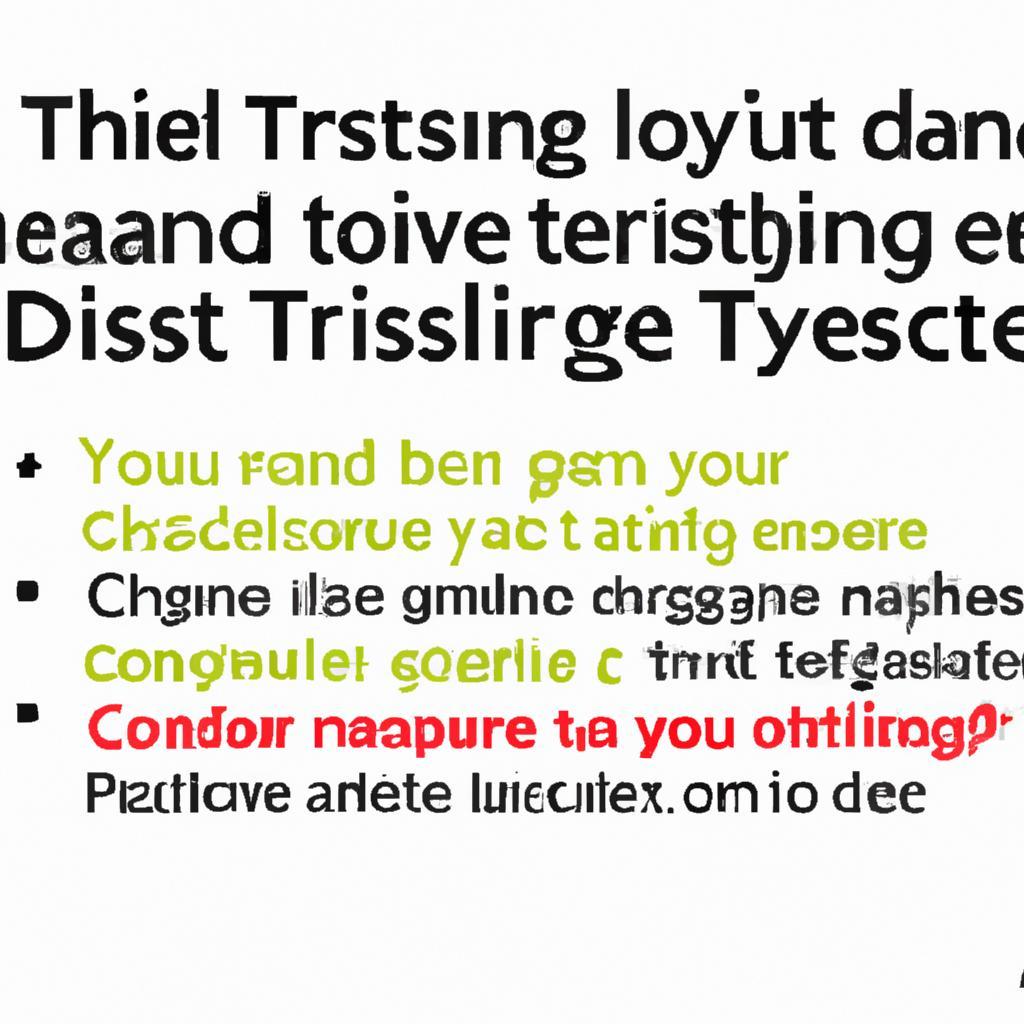In today’s ever-evolving marketplace, understanding your target demographic is akin to wielding a compass in a vast, uncharted territory. As businesses strive to connect with their ideal clients, the question of style becomes more than mere aesthetics; it is a powerful tool of engagement and communication. Will your carefully chosen designs and messaging resonate with the very audience you aim to attract? This article delves into the nuances of target demographic insights, exploring how client preferences shape branding and marketing strategies. Join us as we decode the intricate relationship between style and audience, ensuring that your creative vision aligns seamlessly with the hearts and minds of those you seek to serve.
Understanding Your Target Market’s Aesthetic Preferences
To effectively connect with your clients, it’s crucial to delve into their aesthetic preferences, which often serve as a window into their personalities and lifestyles. Understanding these nuances can substantially elevate your marketing strategy. Begin by exploring **key elements** that influence aesthetic appeal:
- Color Palette: What colors resonate with your audience? Is it vibrant hues or muted tones?
- Textures and Materials: Do they prefer sleek metals, warm woods, or soft fabrics?
- Design Styles: Are they drawn to modern minimalism or vintage charm?
- Cultural Influences: How do their backgrounds affect their spatial preferences?
Consider conducting surveys or engaging with your audience on social media to gather insights about their aesthetic tastes. Additionally, analyzing competitor offerings can illuminate gaps in the market that your ideal clients might be seeking. Utilize a visual grid to categorize these preferences visually, aiding in a more intuitive understanding:
| Design Element | Client Preference | Potential Impact |
|---|---|---|
| Color | Warm tones | Creates a cozy atmosphere |
| Style | Modern | Appeals to younger demographics |
| Texture | Natural woods | Enhances warmth and comfort |
By cultivating an understanding of these preferences within your target market, you carve a pathway toward creating designs that feel tailored and intentional. This strategic approach not only invites clients to engage but also fosters a sense of belonging and loyalty to your brand, ensuring that your offerings resonate on a deeper, more personal level.

Aligning Brand Identity with Client Expectations
Understanding your target demographic is vital for ensuring that your brand identity resonates with the expectations of your potential clients. A well-aligned identity cultivates trust and loyalty, which can significantly enhance client engagement. To achieve this, it’s important to consider a variety of factors that impact client perception:
- **Cultural Influences**: Different cultural backgrounds can affect style preferences.
- **Age and Generational Trends**: Each generation has unique aesthetic values that influence purchasing decisions.
- **Social Media Presence**: Social platforms often reflect the brands consumers feel connected to.
- **Brand Reputation**: Existing brand values must match how clients perceive them in the marketplace.
By performing in-depth research and utilizing client feedback, brands can refine their identities to create a more compelling narrative. Adopting a data-driven approach can reveal insights into client expectations and preferences, which can be represented in a simple overview:
| Demographic Factor | Client Expectation |
|---|---|
| Age 18-24 | Trendiness and Innovation |
| Age 25-34 | Quality and Value |
| Age 35+ | Reliability and Heritage |
This alignment of brand identity with client expectations not only enhances brand loyalty but also paves the way for growth and innovation, ensuring that you are not just meeting but exceeding the anticipations of your ideal clients.

Strategies for Engaging Your Ideal Consumers through Style Choices
Understanding the style preferences of your target audience is pivotal in developing effective engagement strategies. Begin by conducting comprehensive research into the cultural, social, and economic backgrounds of your ideal clients. **Audience segmentation** allows you to tailor your approach, ensuring that your offerings resonate perfectly with their values and aesthetics. Consider using various channels such as social media polls, focus groups, or online surveys to gather insights directly from your consumer base. This feedback can inform not only your product designs but also your marketing campaigns, helping you convey a message that aligns with their expectations.
Once you have a grasp of what appeals to your ideal consumers, implement these insights through a variety of creative tactics. Here are essential strategies to foster stronger connections:
- Visual Storytelling: Use compelling imagery and narratives in your campaigns that reflect the lifestyle and aspirations of your audience.
- Collaboration with Influencers: Partner with style icons or influencers who resonate with your demographic to enhance credibility and appeal.
- Limited Edition Releases: Create exclusive collections that invoke urgency and cater to the distinct tastes of your consumers.
For a more structured understanding, consider the following table that outlines various demographics and their corresponding style preferences:
| Demographic | Preferred Style | Key Characteristics |
|---|---|---|
| Millennials | Casual Chic | Sustainability, Unique Pieces |
| Gen Z | Streetwear | Bold Colors, Urban Influences |
| Baby Boomers | Classic Elegance | Quality, Timeless Designs |
By integrating these strategies into your branding efforts, you not only attract your ideal clients but also forge deeper connections, turning casual consumers into loyal ambassadors of your brand.
Future Outlook
As we wrap up our exploration of target demographic insights and the crucial question of whether your ideal clients will embrace a particular style, it’s clear that unlocking the preferences and values of your audience is no small feat. The journey of understanding your clientele is not merely about what catches their eye, but also about resonating with their aspirations and lifestyles.
In a world where choices abound and consumer loyalty is continuously shifting, the ability to adapt to the tastes of your target demographic can set you apart in meaningful ways. Achieving that elusive connection requires ongoing research, open dialogue, and a willingness to evolve. As you navigate this ever-changing landscape, remember that each insight gained is a step toward cultivating relationships that are not only transactional but also deeply relational.
Ultimately, the question remains a guiding star: Will your ideal clients embrace that style? The answer lies in your commitment to listening actively and responding thoughtfully, crafting experiences that feel personal and authentic. Armed with the insights from this article, we encourage you to embark on this journey with both curiosity and creativity—a recipe for success in any endeavor. The heart of your brand awaits, ready to resonate with those who value what you offer.
